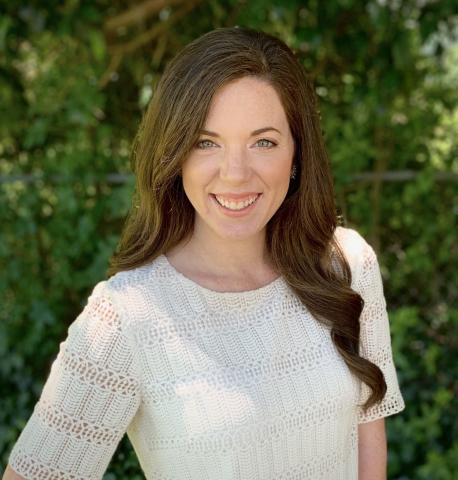The need for primary health care providers is rising and nurse practitioners are well-positioned to fill that gap. However, the funding that would allow more nurses to attain the level of education needed is dropping.
Kaylee Ackel hopes that trend will soon reverse thanks to data she’s been able to provide policy-makers.
Ackel is enrolled in the University of Louisiana at Lafayette’s online Doctor of Nursing Practice program and says she’s unique among her cohort. While the majority of DNP students are nurse practitioners, Ackel’s background is administration and teaching. She’s an assistant professor in the College of Nursing at Northwestern State University in Natchitoches.
“When I started teaching, I felt like earning my DNP would be beneficial to help me bridge that gap,” she says. “I felt it would put me in a better position to serve my students and in healthcare overall.”
With her background, Ackel needed additional residency hours to complete the doctoral program. Dr. Jeanne Cartier, associate professor, helped Ackel find a solution. Dr. Cartier is a former board member for the National Organization of Nurse Practitioner Faculties, or NONPF, and was able to connect Ackel with organization CEO Dr. Mary Beth Bigley.
Dr. Bigley offered Ackel the opportunity to take on a project analyzing the Advanced Nursing Education Grant program under Title VIII, looking at funding that goes directly to students.
“I pored over hours of Excel sheets, and analyzed Title VIII policies over the last seven years,” Ackel says. “The findings showed that traineeship grant money for that program has decreased.”
Since 2017, Ackel says, a policy shift has meant less money for nursing students to pursue advanced degrees while higher education costs are rising along with the need for primary care providers.
“Nurse practitioners are positioned to address that because they serve primary care populations,” Ackel says. “To simultaneously be needing nurse practitioners but not funding them is not ideal.”
Dr. Bigley was able to share Ackel’s findings with nursing policy advocates in Washington, D.C., to try to procure more funding for students pursuing advanced nursing degrees.
“It’s a tangible product of why I decided to pursue my doctorate in nursing. I wanted to apply my leadership education to nursing, and to be able to do it at such a scale where it impacts not only the future nursing workforce but potentially nursing students really just brings everything together,” Ackel says. “It’s surreal. I’m very hopeful it makes a difference.”
Ackel earned both her bachelor’s and master’s degrees at UL Lafayette. She says returning for her DNP has helped her apply what she’s learned in new and meaningful ways while developing a more detail-oriented perspective, especially in regards to applying evidence to practice.
“It’s shown me some of my own capabilities — things I’d never done before,” says Ackel. “But it’s also shown me this whole new world related to nursing that I was always interested in but was unsure how I could contribute to. Now that I’ve gotten a taste of that, I’m interested in how I can do more in the future.”